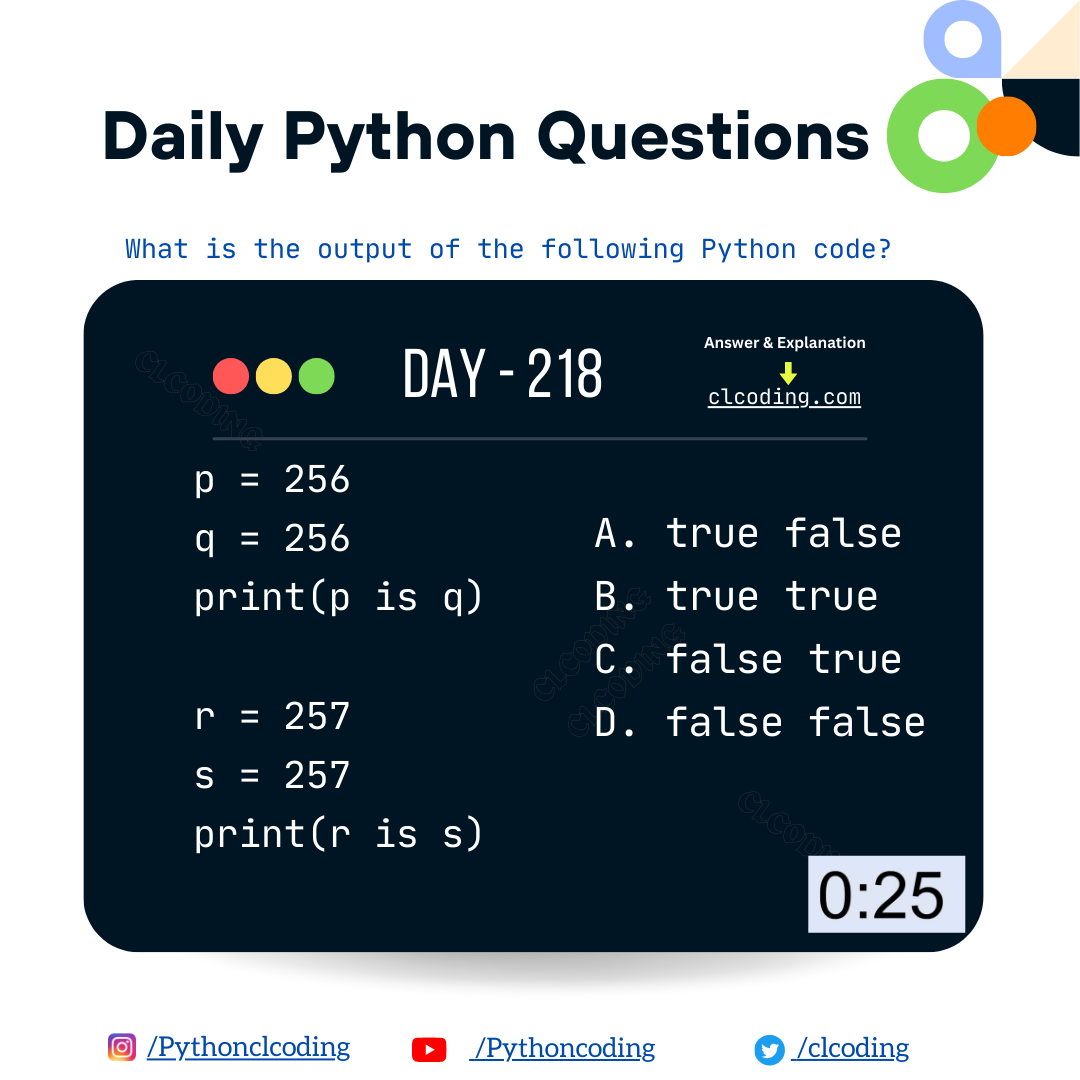Code:
p = 256
q = 256
print(p is q)
r = 257
s = 257
print(r is s)
Solution and Explanation:
First Block:
p = 256
q = 256
print(p is q)
Variable Assignment:
p is assigned the value 256.
q is also assigned the value 256.
Integer Caching:
Python has a mechanism called integer caching where small integers (typically between -5 and 256, inclusive) are pre-allocated and reused. This means that any assignment of these integers will reference the same object in memory.
Identity Check (is operator):
When we do print(p is q), it checks if p and q refer to the same memory location.
Since 256 is within the integer caching range, both p and q refer to the same pre-allocated object.
Hence, p is q evaluates to True.
Second Block:
r = 257
s = 257
print(r is s)
Variable Assignment:
r is assigned the value 257.
s is also assigned the value 257.
Integer Caching:
257 is outside the typical integer caching range.
This means that r and s may not necessarily reference the same object in memory, even though they have the same value.
Identity Check (is operator):
When we do print(r is s), it checks if r and s refer to the same memory location.
Since 257 is not within the caching range, r and s will generally be different objects in memory.
Hence, r is s evaluates to False.
Summary
For small integers (typically -5 to 256), Python uses a single shared object to represent each integer value, resulting in is being True when comparing such integers.
For integers outside this range, Python creates separate objects, resulting in is being False when comparing such integers.
Output
The output of the provided code will be:
True
False




.png)



















.png)

















0 Comments:
Post a Comment